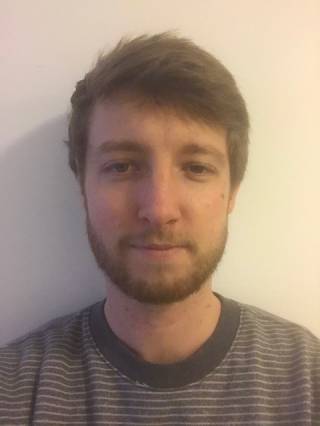"Finding like-minded individuals who are all aiming to contribute positively to the world of disaster risk reduction... is a fantastic and fulfilling prospect."
Phil Baker studied on the MSc Risk, Disaster and Resilience and now works for the Red Cross. Here he shares his experiences on the course and his top tips for making the most out of postgraduate study.

The course itself gave me a rich diversity of modules and topics and the only problem I had was narrowing down which optional modules I wanted to take! Helpful hint: If you’re interested in humanitarianism, Prof. Ilan Kelman’s Conflict, Humanitarianism and Disaster Risk Reduction module is a must. From the start, I was very excited to begin my independent research topic. We were given a huge variety of potential topics to choose from and also the opportunity to design our own research question – something I ended up doing – and then assigned a relevant supervisor. This was something I enjoyed immensely. The department staff were always keen to discuss questions and challenges throughout the modules and projects and I found them to be incredibly approachable.
Independent project tip: Start early. The sooner you start seriously thinking about the project you want to tackle, the more time you’ll have to implement it – especially if you might need to go through UCL Ethics which can take months!
The part of this course I enjoyed most was the people in it: the lecturers, the researchers, the students. Finding like-minded individuals who are all aiming to contribute positively to the world of disaster risk reduction, through theoretical and practical ways, is a fantastic and fulfilling prospect. I now have a great network of researchers, practitioners and experts to consult with or simply meet up and have a drink with (probably while discussing how and why the UK Covid-19 response went wrong).
After finishing the course, I applied for and received additional funding to extend my independent project, something I’m hugely grateful for as I’m now in the process of writing a prospective journal paper to publish the results. My career into humanitarianism and DRR is an ongoing and exciting journey that has undoubtably been helped by this course at the IRDR. The knowledge I have gained has been immense and, as importantly, the critical thinking required to evaluate current thinking surrounding DRR, planning and management of emergencies is something I will continue to learn from and utilise throughout my career!
My advice: ask questions and get involved in discussions as much as possible. The more you put in really will determine how much you get out. The lecturers and speakers are experts in their fields, let them fuel your curiosity.
 Close
Close

